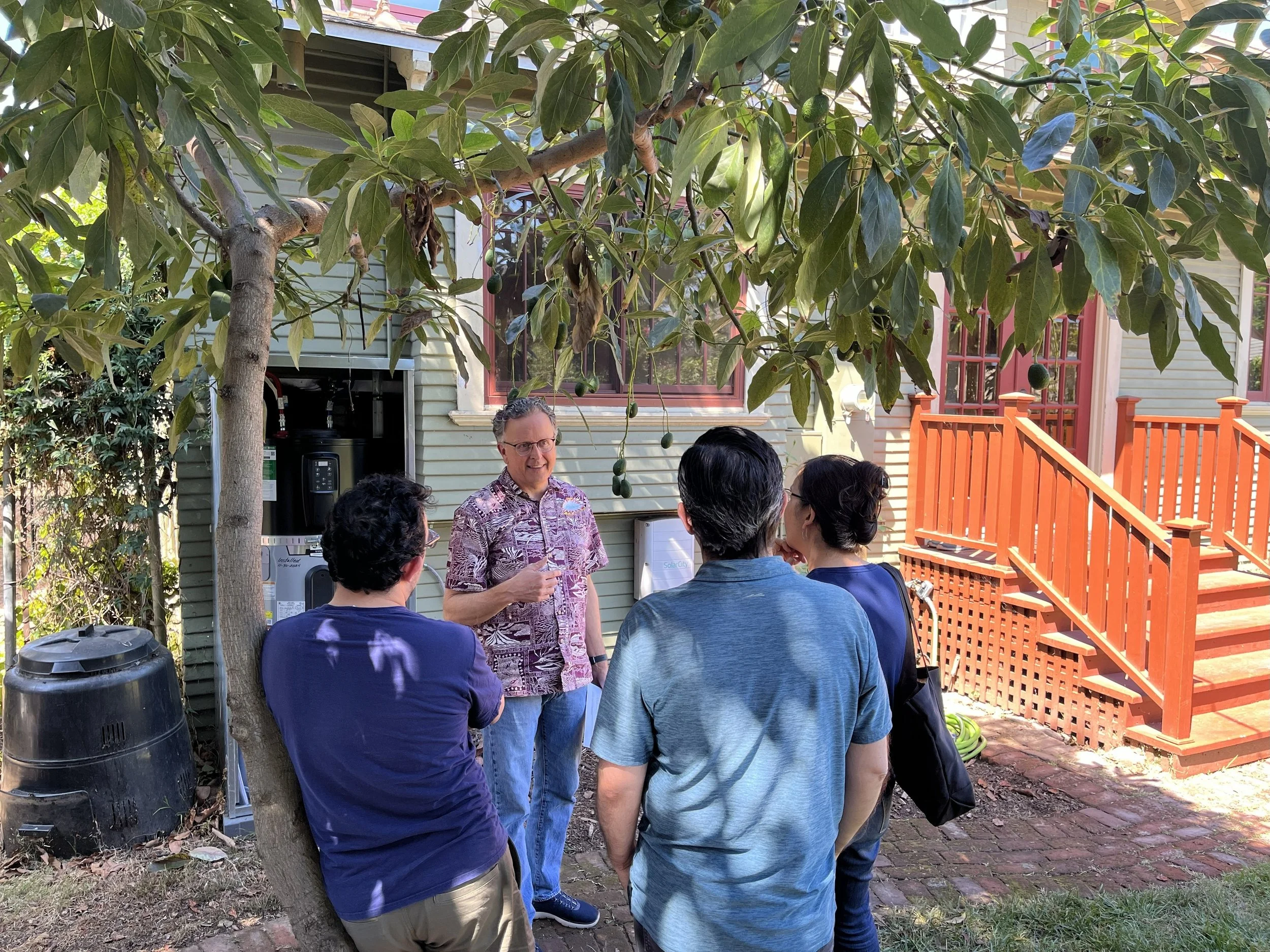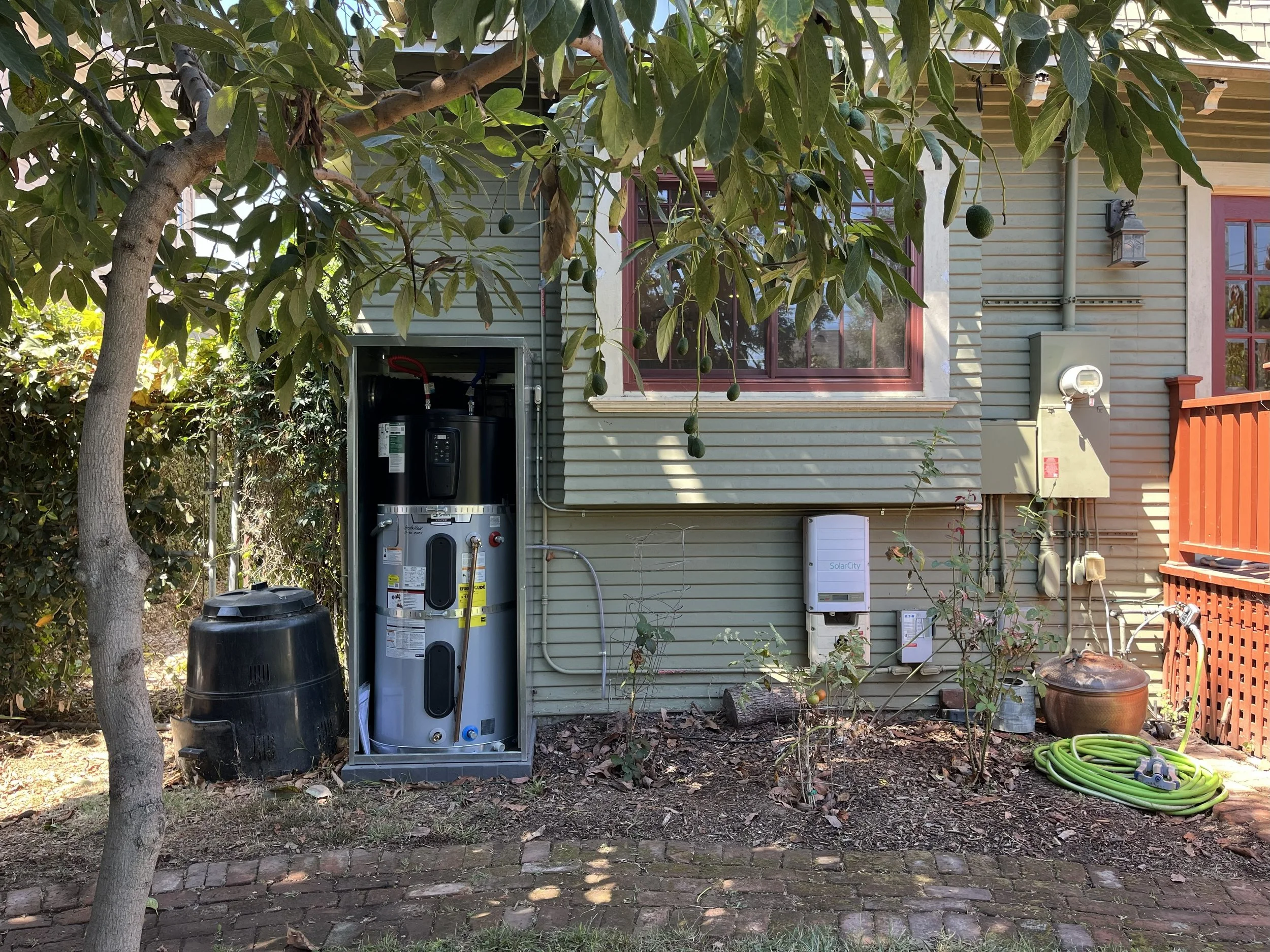As one half of the Los Angeles case study, the UCLA Luskin Center for Innovation (UCLA LCI) will collaborate with local nonprofit Redeemer Community Partnership (RCP) and South LA community members to explore local energy planning and empowerment through the lens of neighborhood-scale gas decommissioning. Residential gas decommissioning — actually shutting off service and then removing existing fossil-fuel infrastructure once it is no longer needed to bring fuel to homes — is a key component of reducing carbon emissions from buildings. While still in early days compared to electrification efforts, neighborhood-scale gas decommissioning is being explored as an opportunistic method to advance residential building decarbonization in California, in part led and funded by the California Energy Commission.
The Partners
The UCLA Luskin Center for Innovation brings a wealth of experience conducting community-engaged research, as well as working with stakeholders on local energy equity in LA. The center’s ongoing work includes facilitating the equity engagement for the LA Department of Water and Power’s clean energy transition.
Redeemer Community Partnership is a nonprofit community development corporation located in the Exposition Park neighborhood of South Los Angeles. Since its founding in 1992, Redeemer Community Partnership has strived to improve safety and quality of life in its neighborhood through programming, organizing, and advocacy. As a member of the STAND-LA coalition, the nonprofit has organized against oil drilling located mere feet from its members’ homes, with major recent wins.
The Questions
Building on the organizations’ existing work on building electrification and the shift away from fossil fuel–based energy, as well as community input, the project will explore the potential for gas decommissioning in South LA neighborhoods. While the specific project activities will be co-designed with community partners, the following research questions form a starting point:
How might neighborhood-scale gas decommissioning help South LA communities address the risk of rising gas distribution costs, while supporting residential electrification?
What equity and justice principles must be considered in a transition away from gas access, and how can these principles be integrated into local gas decommissioning decision-making and governance processes in the future?
Is gas decommissioning consistent with local communities’ values and practices, and if not, why? Do South LA communities want to transition off of natural gas?
The Work
The project will include a combination of community workshops, focus groups and small working groups, short surveys, interviews with agency and utility staff, and review of other efforts and literature on gas decommissioning. It aims to lead to a number of outcomes, including the following:
Increased knowledge of electrification and gas decommissioning within the project area, as well as capacity to pursue neighborhood-level gas decommissioning if desired.
Strengthened relationships among research team and community members, with community members reporting that the process was respectful, meaningful, and beneficial.
Deliverables to support any future organizing and policy action around gas decommissioning among the community members, such as an organizing manual or policy brief.
Most ambitiously, possible ongoing community organizing to actively pursue gas decommissioning for one or more neighborhoods.

